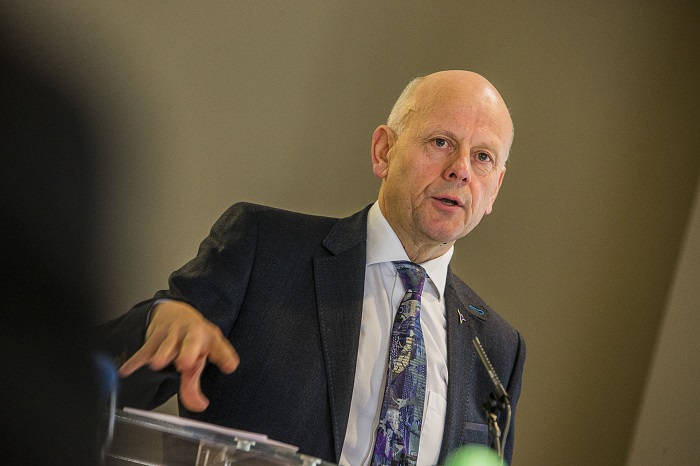
By Mario Kreft MBE, Chair of Care Forum Wales
The people who work in care homes and domiciliary care companies are national treasures and they need to be appreciated as such.
Instead, the social care sector and in particular independent providers have traditionally been viewed as a Cinderella service, something that is somehow separate from the NHS rather than being incorporated as an essential part of an integrated health and social care regime in Wales.
The truth is that social care has all too often been seen as a cost rather than something that has great value to society and as a force for good that binds our communities together.
That is one of the underlying reasons why social care is in crisis. It is only in very recent times that this has been understood and indeed there are some very encouraging signs but we have a great deal of ground to make up for past mistakes.
The upshot is that care homes and domiciliary care companies have been chronically underfunded for decades while the workforce has been chronically undervalued.
It’s a situation that has been made worse because we have rapidly growing number of people whose needs are ever more acute.
Fact one; over the next 20 years the over 85 year old population is going to double.
Fact two: the number of beds available in social care is diminishing because care homes are closing across Wales.
Fact three: it is increasingly difficult to recruit and retain staff.
Things are bad now. But be prepared for them to get a lot worse unless urgent action is taken to sort it out.
At the same time, very few individuals or organisations are investing in building new care homes. They are the exception and not the rule.
That’s down to the mathematics of social care which are depressingly straightforward and this also resulted in low pay for many working on the front line when we should instead be investing in them.
The fees paid by local authorities and health boards are largely predicated on keeping pay at low levels, often on paying no more than the statutory minimum wage.
The social care workforce is largely made up of women and I do believe there is an element of discrimination here, not by any individual or any particular organisation but by society as a whole.
It’s a nonsense to say that social care is a low skill occupation. It is the opposite of that. You may not need an Ology from university but you do need some really important qualities and skills. To be a great care practitioner you need things like a high level of emotional intelligence, kindness and compassion. Sadly, as yet, an economic tag has not been put on these qualities.
Social care is also an economic powerhouse which contributes more than £2 billion a year to the Welsh economy and employs six per cent of the Welsh workforce.
We set up the Wales Care Awards to recognise the wonderful work that they do and the so-called Oscars of social care are now in their 17th year.
There are signs now that the tide of public opinion is turning and the value of social care has, to their great credit, been recognised by the Welsh Government who have included the sector as one of the four main pillars of the Welsh foundation economy.
It’s completely changed the dynamic. The recognition of social care as being important to the foundation economy was a game-changer. We can’t export social care in the same way that we export widgets and other goods.
That changing narrative now needs to feed into the calculations of local authorities and health boards when determining the fees they pay for social care, especially as the services they provide underpin the NHS and help it keep functioning.
I am deeply concerned that unless we really change our focus, unless we really value the service in a different way, we are going to see a continuing downward spiral in social care, with the inexorable rise in demand and the fall in the number of available beds.
At the same time, the recruitment and retention of staff is a growing problem. There is something seriously wrong when you can earn more stacking supermarket shelves than you can for looking after vulnerable people in a care home or in their own homes.
Essentially, it all boils down to equality and fairness – the basic traits that the Welsh nation is famous for.
We need to ensure that older people, people with disabilities and special needs have the best possible quality of life. But it’s not going to happen just because we wish it to be so.
To make this a reality we need to ensure that the procurement process for social care is fair and transparent and that the fees set across Wales enable us to do the right thing by the people who work in the sector and the people for whom they provide care.
That means establishing and following a realistic tool kit to calculate fair fees so that care homes and domiciliary care companies are financially viable so they can pay staff what they truly deserve.
Instead of being predicated on paying the minimum wage, the pay formula adopted by local authorities and health boards should be based on paying the voluntary living wage. That should be the baseline for all social care workers in Wales.
We cannot continue undervaluing our national treasures.